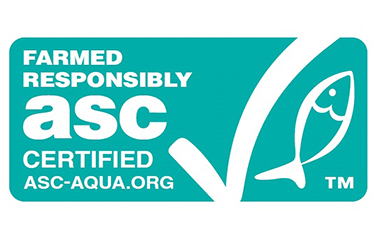ASC rolls out new process for variance requests with increased stakeholder input

The Aquaculture Stewardship Council (ASC) is updating its variance requests (VR) process, a move that will give shareholders and NGOs the opportunity to contribute to decisions on local variances to the ASC standards.
The new VR process was published on 29 October and is due to go into effect on 15 December.
Considered a vital part of “any credible global certification program,” according to ASC, variance requests provide the means necessary to adapt a global standard to specific local conditions, without lowering requirements.
Within the update, technical analysis has been made a requirement when making decisions about requests, ASC said. The inclusion of stakeholder consultation is another significant change being made to the process, the certification organization said – relevant stakeholders to a given VR will soon be proactively notified, allowing them to provide feedback based on their applicable knowledge and experience.
“This addition was itself based on stakeholder feedback which ASC sought as it developed the new process, and it means that NGOs or local community groups can have their say on any proposed variances to the standard,” ASC said.
Conformity assessment bodies (CABs), in light of the new update, are “encouraged to familiarize themselves with the new process, along with a new process for variance requests made to ASC’s Certification and Accreditation Requirements (CAR), before both go live on 15 December,” ASC said. Additional guidance documents and training will be provided by the ASC to aid in this, the organization confirmed.
"Variance Requests play an important part in any credible global certification program, so it’s only right that they are based on technical analysis and meaningful stakeholder consultation,” ASC Head of Standards Javier Unibazo said. "ASC has always taken Variance Requests seriously, but this update provides a checklist and process that is consistent, efficient, and most of all maintains the very high requirements of the ASC standards. The policy itself has also been shaped by feedback we received from stakeholders ranging from NGOs to auditors, based on their experience of the variance request process, as part of multiple rounds of public consultation. It’s easy to ask for feedback but at ASC we will always take it into account when making decisions or updating the program.”
The adjustments made to the VR process enables requests to be submitted “in a way that is consistent, inclusive, and requires that all decisions are the result of a technical analysis,” ASC said.
“This analysis will be carried out taking into account stakeholder input, and will be presented to the VR Committee, made up of independent members of the ASC’s Technical Advisory Group with additional independent oversight. The addition to the process of strict and defined timelines should also improve the process for CABs and ensure decisions that are timely as well as evidence-based,” it said.
At any time, stakeholders can reach out to ASC regarding variance requests, and if new evidence merits reassessment, the organization said it will proceed accordingly when necessary.
ASC also published its new separate policy for variance requests made to its CAR, a document that sets out requirements for independent CABs regarding how standards should be applied.
“Just as with the ASC standards, the CAR is applied in widely varying circumstances all over the world and as a result sometimes variances will be required, but as a different document the updated process for variance requests to the CAR is slightly different,” ASC said. “Unlike variance requests to the ASC standards, requests to the CAR are not science-based and less likely to require detailed technical reviews, and as they are limited in scope to the operation of CABs the number of relevant stakeholders is much smaller. For these reasons, VRs to the CAR will not require the same stakeholder consultation, but all requests must be approved by the independent VR Committee and made public on the ASC website. Importantly, such requests cannot relate to the compliance of an aspect of one of the ASC standards, which much go through the ASC Standards VR process.”
ASC said it will provide CABs with training as well as a flowchart a flowchart breaking down the new processes “one step at a time.”
The new processes can be downloaded on ASC’s Program Assurance Team webpage.





Share